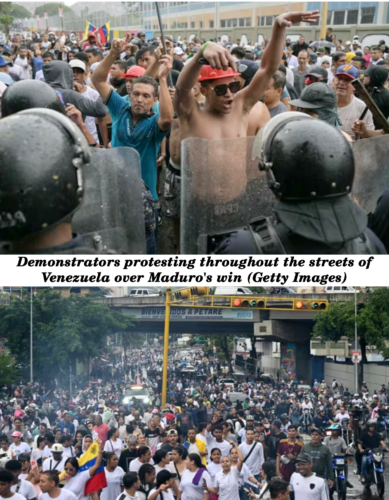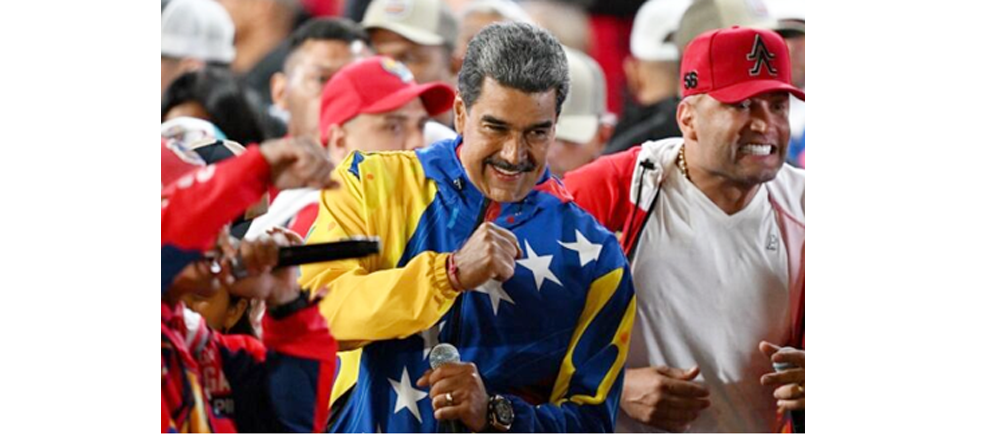Photo: Nicolas Maduro, re-elected Venezuelan president (Getty Images)
by Kristen Ku
BELIZE CITY, Mon. July 29, 2024
Venezuela is currently in the middle of a deep political and economic crisis causing widespread protests across the country and diaspora following the National Electoral Council’s (CNE) announcement that Nicolas Maduro has won the recent presidential election with 51% of the votes. The opposition, however, claims the election was marred by fraud.
Venezuela, once one of the wealthiest countries in Latin America, has been facing economic and political challenges for several years. The country’s troubles began after global oil prices plummeted shortly after Nicolas Maduro took office in 2013, succeeding the late Hugo Chávez. Because of its left-wing policies, the country has also faced stiff sanctions from the US, Canada, and the European Union.

Heavily reliant on oil revenue, Venezuela plunged into an extended economic recession that saw inflation skyrocket and basic goods become scarce. The situation worsened as millions of Venezuelans fled the country, seeking better living conditions elsewhere.
Since Hugo Chávez’s presidency in 1999, the socialist PSUV party has maintained control over key institutions, including the judiciary, the electoral council, and the Supreme Court. Many observers say the concentration of power has ruined the system of checks and balances, making the presidency increasingly powerful. As a result, Maduro’s re-election in 2018 was widely criticized as neither free nor fair.
On July 28, the CNE announced that President Maduro had been re-elected for another 6-year term, set to last from 2025-2031. However, the opposition and many Venezuelans believe the election results were rigged. Some reports say the CNE, reportedly dominated by Maduro loyalists, hasn’t yet released the detailed tallies from the 30,000 polling stations, and the delay has further exacerbated suspicions of election fraud.
According to opposition representatives, their tallies leading up to the elections showed Edmundo Gonzales, the opposition candidate, leading significantly over Maduro. Opposition leader, Maria Corina Machado, who initially emerged as a strong contender before backing Gonzales, claimed that the opposition had registered over 70% of the votes, indicating a clear win over Maduro.
Following these allegations, the opposition has called for peaceful protests across the country. Gonzales, in a calm but firm address, insisted that the will of the Venezuelan people would be respected.
The results of the elections have caused widespread protests, with some demonstrators toppling a statue of Hugo Chávez while others tore down Maduro’s campaign posters and chanted slogans demanding change. Some protesters even marched towards the presidential palace where they were met with a strong police and National Guard presence who used tear gas to disperse the crowd.
In light of the crisis, nine Latin American countries have since called for an emergency meeting of the Organization of American States (OAS) to discuss the election results. Panama, one of the countries, has put its diplomatic relations with Venezuela on hold, pending a full review of the election process.

